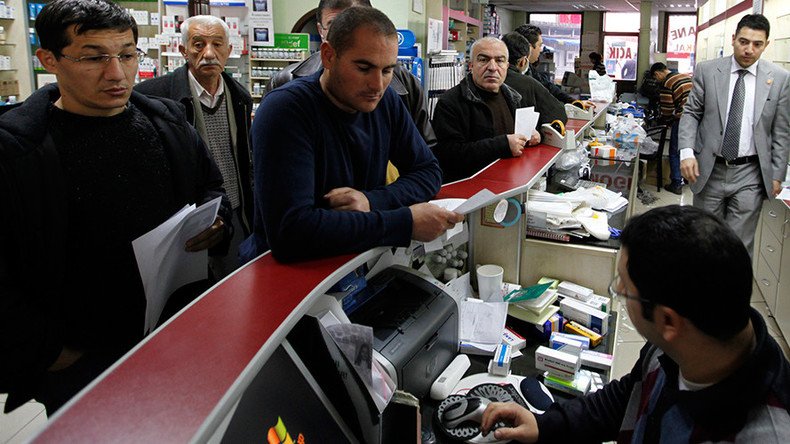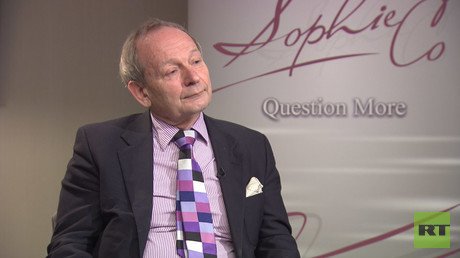Turkish pharmacies to stop providing free drugs to refugees

The Turkish Pharmacists’ Association (TEB) has said it will no longer provide free medication to Syrian refugees if the government doesn’t resume payments for the expenses. The announcement comes just a week after the EU secured a €3 billion migrant deal with Turkey.
“Despite our negotiations and our devoted efforts to not disrupt the continuity of service, all our efforts and contacts with authorities, mainly with the AFAD [Turkey’s Disaster and Emergency Management Authority], have been fruitless,” reads a statement issued by the association, cited by Turkish Hurriyet newspaper.
Turkey/EU deal: Erdogan has fawning Eurocrats wrapped around his finger (Op-Edge by @27khv) https://t.co/D0YToyyayTpic.twitter.com/nDxrWXFslQ
— RT (@RT_com) 20 марта 2016 г.
The pharmacists say they will have to stop providing free medicine next month as they have not been paid for it since October 12. On that date, a new nationwide policy by the AFAD was adopted which disrupted the existing system of the free supply of medication in coordination with local authorities and emergency directorates.
The new policy has proven to be widely ineffective and has resulted in major delays in payment, which has made many of the pharmacists run into debt, according to TEB General Secretary Arman Üney, who stressed that there was no valid agreement between the TEB and AFAD.
“Our medicine services that we have maintained without any protocol have reached the point of stagnation now,” reads the TEB’s statement.
Üney blamed the Turkish government’s failure to tackle the issue for causing the crisis.
“Because of the chaos in authorities, because of uncertainties, because of the lack of regulations, the budgets of pharmacies have been shaken due to not being paid for six months,” he told Hurriyet, adding that as a result of the government’s lack of clear guidelines more than 3 million prescriptions remained unpaid.
Under the terms of the EU-Turkey refugee deal, Europe agreed to allocate Turkey €3 billion (US$3.8 billion) in addition to another €3 billion promised to it earlier for improving the conditions of refugees living in Turkey. According to the deal, the EU will take in thousands of Syrian refugees directly from Turkey; in return, Ankara pledged to take back all illegal immigrants who reach Greece from Turkey, starting March 20.
Although the controversial deal was hailed as a “breakthrough” by the European Commission, some EU countries, including France and the Czech Republic, have accused Turkey of blackmailing Brussels ahead of the talks, and have pointed to Ankara’s growing appetite for money.
“The EU's original proposal to Turkey was for €3 billion, now Turkey is asking for €6 billion and there is talk ... of about up to €20 billion,” said Czech President Milos Zeman.
French Prime Minister Manuel Valls also warned that “there must not be the slightest blackmail” in Turkey’s actions for cooperation to succeed.
The number of Syrian refugees registered in Turkey is estimated at 2.5 million people.













